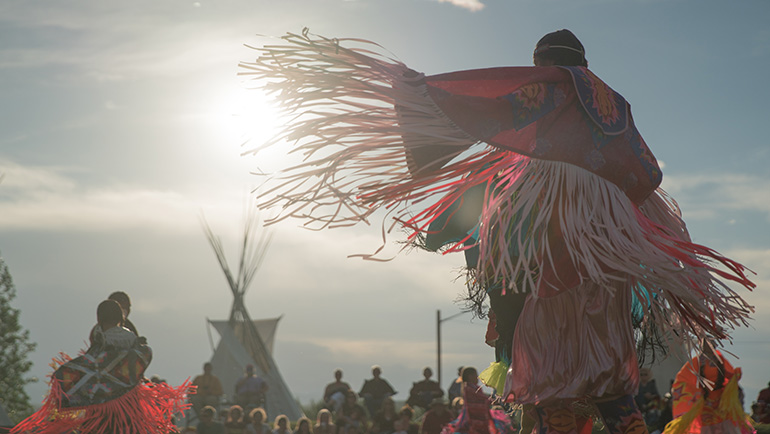
Growing up on the Batchewana First Nation reservation in Ontario, Canada, Wayne State University graduate student Natalie McCabe didn’t view Thanksgiving Day as a time for revelry and fond reflection.
For her family, and many other First Nations people throughout North America, the biggest reason to acknowledge the season was simply that they were alive at all.
With November marking Native American Heritage Month, McCabe offered a perspective on Thanksgiving that’s too often overlooked amid the din about turkey and parades and football games.

“Thanksgiving, we celebrated it as a family more as a survival story. We were just grateful to be alive,” said McCabe, who is Anishinaabe, a collective group of First Nations people.
McCabe says that today’s superficial narrative of “pilgrims and Indians” coming together in unity covers up the tragic history of Indigenous people in North America being mistreated, betrayed and slaughtered.
A member of WSU’s Native American Student Organization, McCabe said that the mistreatment of First Nations people has continued, arguing that laws, treaties and agreements are still violated even today.
She cited the landmark Two Row Wampum Treaty — signed in 1613 by the Onkwehonwe people of Turtle Island and European immigrants — and the American Indian Religious Freedom Act of 1978 (which recognized Native Americans’ rights to their own cultural practices) as two glaring examples at opposite ends of the historical spectrum of agreements that were continually dishonored: “The Wampum treaty meant we could coexist with each other. We could practice our spiritual/cultural ways, and you can practice yours — and we won’t interfere. That was clearly broken. And the American Indian Act was not that long ago in our existence. We see even today that Indigenous people are mistreated.”
McCabe, who now lives in metro Detroit, noted that she does partake in many of the holiday’s European-American traditions with her husband and their three children — but that she has never forgotten its historical significance to her people.
“We celebrate here and do the same North American tradition of turkey, stuffing, gravy, mashed potatoes and all those kinds of fixings,” she said. “I think that if I was still on the reservation, we’d probably be eating venison or partridge. It’s not just going to the grocery store and buying turkey. A lot of my family members are still hunters.
“It’s a different kind of understanding of the holiday.”
